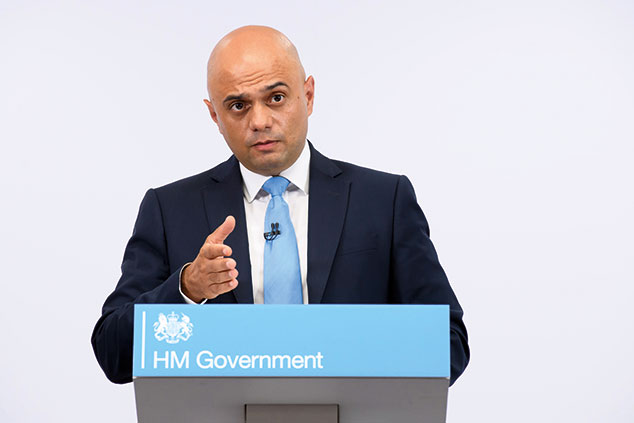
“Brexit is not about pulling up the drawbridge”, but about “having the power to decided for ourselves who should and shouldn’t be allowed to live and work here – wherever in the world they were born”, says the Daily Mail.
So the new report from the Home Office’s Migration Advisory Committee (MAC) recommending that “EU citizens should be given no special preference for work visas after Brexit” is “no more than simple logic”. If Britain “needs more nurses, or IT technicians, or chemists”, we “should be attracting the best available in those fields” and it should be “irrelevant” where they come from.
Rebuke to Leavers
Hang on a second, says Sam Coates in The Times. Yes, advocates of ending preferential access for EU citizens – such as Sajid Javid, the home secretary – will find “a lot in today’s migration advisory report to welcome”. However, the report concludes that “both the positives and negatives of free movement are overblown”.
This is “a sharp rebuke to those Leave campaigners who used scare tactics over free movement during the referendum”. It’s also important to recognise that any restrictions on immigration from EU countries are likely to “create upset in business groups and possibly in business-friendly departments, including the Treasury”.
What’s more, the report finds that “immigrants are relatively more beneficial for the public finances than natives”, since they pay more in taxes than they consume in benefits and services, says Jonathan Portes in The Independent – and migrants from the EU make a large positive contribution overall: “The average EEA migrant arriving in 2016 will contribute a discounted total of around £78,000 to the UK public finances over his or her lifetime.” Had there been no immigration in 2016, “the rest of us would have had, over time, to find £25bn, through higher taxes, public-service cuts, or higher borrowing”.
Take back control – and use it as a bribe
If Theresa May wants her Brexit plan to succeed, “she’ll have to be able to convince the British people she has taken back control of Britain’s borders”, says Asa Bennett in The Daily Telegraph.
So it’s likely that the MAC’s hard-line approach to future EU immigration will be similar to what she unveils at the upcoming Conservative party conference to “reassure her Brexiteer colleagues”. But this doesn’t mean it will necessarily be reflected in the final deal, especially if the government “compromises in negotiating its trade deal with the EU in transition by offering to loosen migration rules for its citizens”.
Indeed, the MAC suggests the government could “use work visas essentially as a bribe in trade talks”, offering “preferential access” to countries prepared to strike free-trade deals with Britain, including the EU, says Gaby Hinsliff in The Guardian. This conflicts with Brexiteers’ goal “to keep numbers down at all costs”.
Still, even if the report doesn’t provide a definitive answer to the question of a post-Brexit immigration policy, it “brings us one step closer to the moment when everyone has to show their hand”.